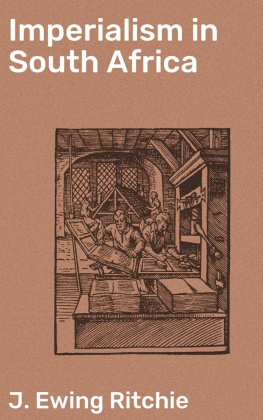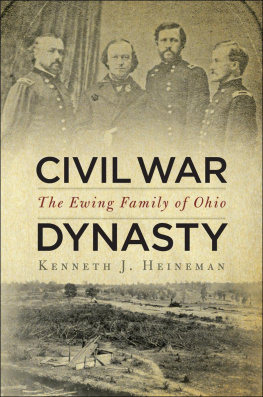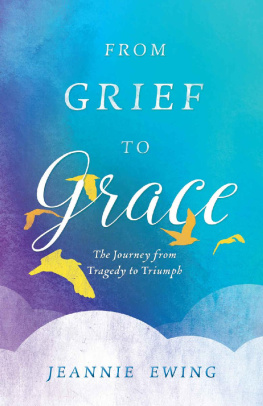PREFACE.
In this little work I have aimed to write, not a history or a biography, not a criticism or a eulogy, but merely to give a few scattered notes, gathered from many quarters, for the general public, rather than for the professional politician. Lord Rosebery is reported to have said that it will require many writers to give a complete biography of Mr. Gladstone. He may be right; but the evil of it will be, the work, if exhaustive, will be exhausting. Especially will it be so in these busy times, when yesterdays biographies become stale to a public forgetful of the past, caring only for the present, oblivious of the morrow. It is almost an impertinence to speak of the many claims Mr. Gladstone has on a people whom he has served so long. All I claim to do is to give a few data which may help them to estimate the
Heroic mind
Expressed in action, in endurance proved
in short, more or less imperfectly, The Real Gladstone.
Clacton,
May, 1898.
CHAPTER I.
BIRTH AND SCHOOLDAYS.
Many, many years ago Englands foremost statesman, as George Canning then was, distrusted by the multitude, feared by his colleagues, regarded with suspicion by the First Gentleman of the Ageas it was the fashion to term George the Magnificent, who was then seated on the British thronewearied of the strife and turmoil of party, spent a short time at Seaforth House, bidding what he deemed his farewell to his Liverpool correspondents. His custom, we are told, was to sit for hours gazing on the wide expanse of waters before him. His had been a marvellous career. Born out of the circle of the ruling classes, by his indomitable energy, the greatness of his intellectual gifts, his brilliant eloquence, he had lifted himself up above his contemporaries, and had become their leader; and here he was about to quit the scene of his triumphsto reign as Viceroy in a far-off land. Canning, however, did not retire from the Parliamentary arena, but stopped at home to be Premier of Great Britain and Ireland, and to let all Europe know that this country had done with the Holy Alliance; that a new and better spirit was walking the earth; that the dark night of bigotry was past, and that the dawn of a better day had come. As he sat there looking out over the waters, a little one was to be seen playing below upon the sand. That little lad was the son of Cannings host and friend, and his name was William Ewart Gladstone. Does it not seem as if the little one playing on the sand had unconsciously caught something of the genius, of the individuality, of the eloquence, of the loftiness of aim, of the statesman who sat above him overlooking the sea? Circumstances have much to do with the formation of character. To the youthful Gladstone, Canning was a light, a glory, and a star.
William Ewart Gladstone was born on December 29, 1809, at a house which may still be seen, 62, Rodney Street, Liverpool. He was of Scotch extraction, his father, a Liverpool merchant, having an estate in Scotland. Mr. Gladstone senior lived to become one of the merchant princes of Great Britain, a Baronet, and a Member of Parliament. He died, at the advanced age of eighty-seven, in 1851. His wife was Anne, daughter of Andrew Robertson, of Stornoway. They had six children; William Ewart Gladstone was the third. The family were all brought up as debaters. The children and their parents are said to have argued upon everything. They would debate whether the meat should be boiled or broiled, whether a window should be shut or opened, and whether it was likely to be fine or wet next day.
As a little boy, Gladstone went to school at Seaforth, where the late Dean Stanley was a pupil. The latter is responsible for the following: There is a small school near Liverpool at which Mr. Gladstone was brought up before he went to Eton. A few years ago, another little boy who was sent to this school, and whose name I will not mention, called upon the old clergyman who was the headmaster. The boy was now a young man, and he said to the old clergyman: There is one thing in which I have never in the least degree improved since I was at schoolthe casting up of figures. Well, replied the master, it is very extraordinary that it should be so, because certainly no one could be a more incapable arithmetician at school than you were; but I will tell you a curious thing. When Mr. Gladstone was at the school, he was just as incapable at addition and subtraction as you were; now you see what he has becomehe is one of the greatest of our financiers.
William Gladstone left home for Eton after the summer holidays of 1821, the headmaster being Dr. Keate. Sir Roderick Murchison describes him as the prettiest little boy that ever went to Eton. From the first he was a hard student and well behaved, and exercised a good influence over his schoolfellows. I was a thoroughly idle boy, said the late Bishop Hamilton of Salisbury, but I was saved from worse things by getting to know Gladstone. Another schoolfellow remembered how he turned his glass upside down, and refused to drink a coarse toast proposed according to custom at an election dinner. His most intimate friend was Arthur Hallam, of whom he wrote an article in the Daily Telegraph, which created universal admiration. He had the courage of his opinions, and when bantered by some of his associates for his interfering on behalf of some ill-used pigs, he offered to write his reply in good round hand upon their faces. He took no delight in games, but kept a private boat for his own use, and was a great walker with his select friends. He was accustomed on holidays to go as far as Salt Hall, to bully the fat waiter, eat toasted cheese, and drink egg-winehence he seems to have been familiarly known as Mr. Tipple. But he soon became especially distinguished by his editing the Eton Miscellany, and for his skill in debate at what was commonly called the Pop. Its meetings were generally held over a cook-shop, and its politics were intensely Tory, though current politics were forbidden subjects. His maiden speech was in favour of education. Eton at that time was not a good school, writes Sir Francis Doyle; but he testifies strongly to the virtues of the debating society. He continues: In the debating society Mr. Gladstone soon distinguished himself. I had the privilege of listening to his maiden speech. It began, I recollect, with these words: Sir, in this age of increasing and still increasing civilization... After Mr. Gladstones arrival, the debating society doubled and trebled itself in point of numbers, and the discussions became much fuller of interest and animation. Hallam and Mr. Gladstone took the lead. Not content with the regular debating society, Mr. Gladstone and a few others, such as Miles Gaskell and Canning, established an inner one, held on certain summer afternoons in the garden of one Trotman. Sir Francis continues: It happened that my tutor, Mr. Okes, rented a small garden at the rear of Trotmans, and by some chance found himself there on the occasion of one of these debates. To his surprise, he heard three or four boys on the other side of the wall sneering, shouting, and boohooing in the most unaccountable manner. There seemed but one conclusion to him as an experienced Eton tutorviz., that they were what we at the Custom-House used somewhat euphemistically to term under the influence of liquor. He thereupon summoned Mr. Gladstone to his study, listened gloomily and reluctantly to his explanations and excuses, and all but handed over our illustrious Premier, with his subordinate orators, to be flogged for drunkenness.






